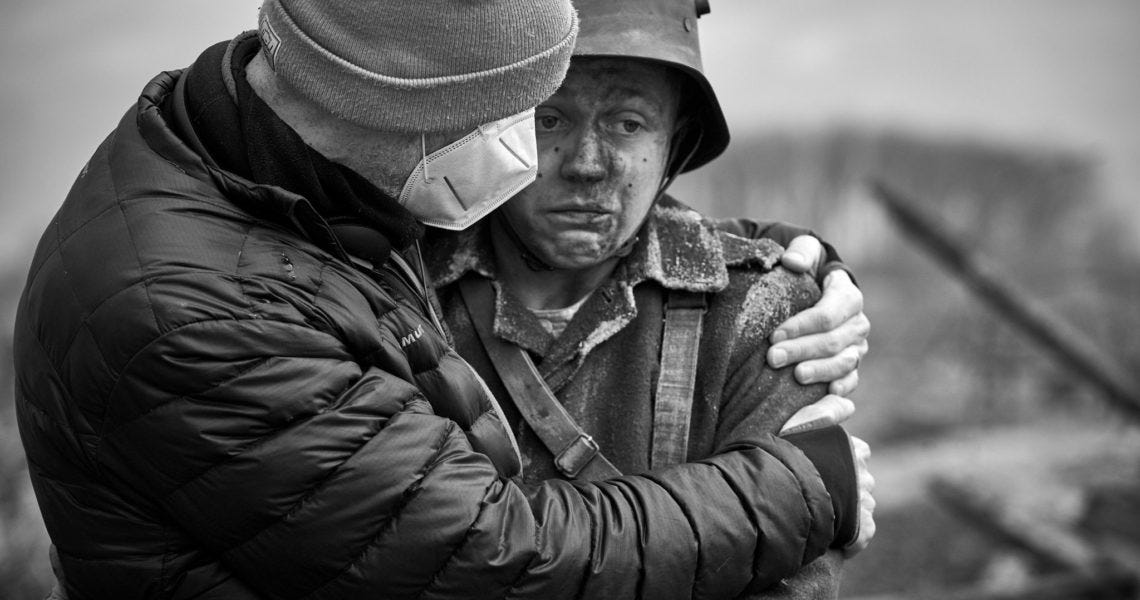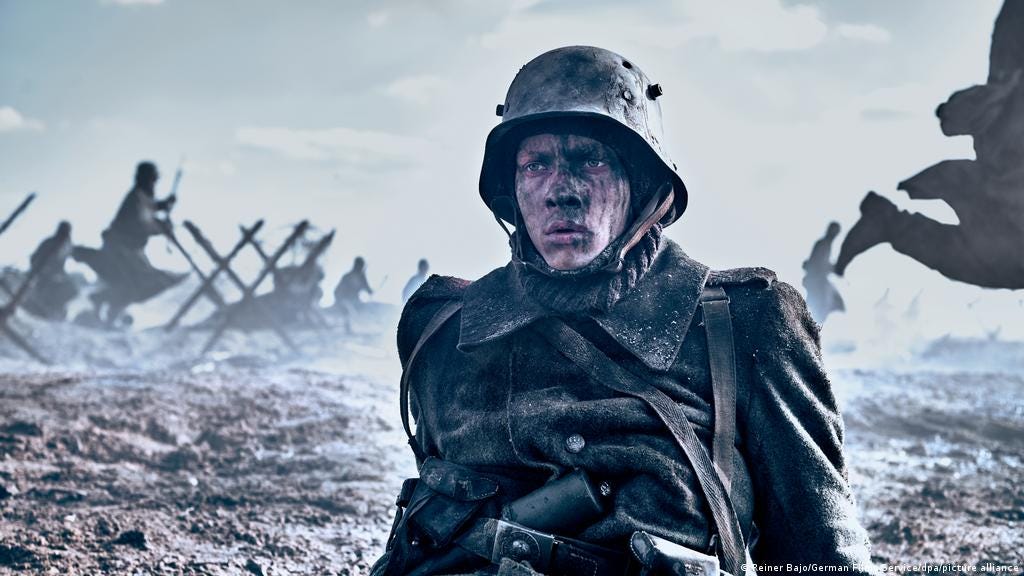How Are You? Nobody Is Fine

Asking ‘how are you?’ feels increasingly deranged. The usual answer—“fine”—was always insincere. Now it’s just completely unbelievable. Who the fuck is fine? After years of this, who on Earth is fine?
That usual question often leads to unusual intimacies these days. Everybody’s going through some shit, everybody knows it, and sometimes we just talk about it.
When I meet people now we often end up talking about trauma. Being in isolation for months, being sick ourselves, slowly going insane. Economies collapsing, countries collapsing, marriages crumbling, children struggling. That’s just the baseline now. And we’re the lucky ones.
When I talk to old friends, people I’m supposed to be intimate with, it’s clear that we’ve all taken serious damage this past few years. We’re often unaware of how much has just happened to us, and how little we control. People blame themselves, or their partners, or their individual circumstances, and not the globe-shattering event we’re still living through. Which killed millions of people around us. Which has shaken everything else loose, leading to a cascade of chaos.
It’s hard to underestimate the sheer amount of ambient stress we’re under. For years, stepping out of the house was a question of survival, and now it’s fraught with the guilt that you’ve just stopped caring. We have to be amateur epidemiologists to take a flight, amateur economists to have any money, and amateur pundits to debate this shit all the time. We can’t. We’re fucking amateurs.
Need an Ambien. The amount of horrible shit you need to be ambivalent about to keep going is just staggering. I’m not even saying it’s all sad or that I’m sad all the time. I’m honestly not. In my life I’m mostly joking or enjoying something or complaining or whatever. But the experience reminds me, increasingly, of Erich Maria Remarque in All Quite On The Western Front. He talked about young men thrust into terrible war, who somehow joked and thought mainly about food when they were away from it.

As he said about the young cannon fodder of World War I:
“I soon found out this much: — terror can be endured so long as a man simply ducks; — but it kills, if a man thinks about it. Just as we turn into animals when we go up to the line, because that is the only thing which brings us through safely, so we turn into wags and loafers when we are resting. We can do nothing else, it is a sheer necessity. We want to live at any price; so we cannot burden ourselves with feelings which, though they might be ornamental enough in peacetime, would be out of place here.”
The last century is fucking repeating and we’re cannon fodder for fools again. The fools who decided to not even fight a pandemic, who decided to not fight for a livable planet, who decided to fight over the last bloody oil and filthy lucre instead. As Remarque wrote:
“We often made fun of them and played jokes on them, but in our hearts we trusted them. The idea of authority, which they represented, was associated in our minds with a greater insight and a more humane wisdom. But the first death we saw shattered this belief. We had to recognize that our generation was more to be trusted than theirs. They surpassed us only in phrases and cleverness. The first bombardment showed us our mistake, and under it the world as they had taught it to us broke in pieces.”
To me COVID-19 was the first bombardment. And the artillery of idiocy has been unremitting ever since. Other people saw this coming long before, I’ve been digging up their books, hearing about all the lives already beggared and lost. But to we who were comfortable and are now uncomfortable, it’s quite a shock. I was young. I read The New York Times and The Economist. I was patiently waiting my turn. My turn for what? These fuckers are sailing off in yachts while the world burns. I’ll repeat Remarque, “They surpassed us only in phrases and cleverness. The first bombardment showed us our mistake, and under it the world as they had taught it to us broke in pieces.”
I get it, I guess, but what the fuck am I supposed to do with this information? Start a revolution from my bed, cause the brains I had went to my head? Every young fool at the Western Front (except greater fools like Hitler) knew that something was wrong. They knew their leaders were idiots. They knew holding or taking that trench was pointless. And yet they marched and died in the gas and gangrene anyways. So here we are, dying in the carbon and COVID today. We’re all quiet at the western front. We’re shell shocked.
Besides the ambient trauma, many of us have heavier burdens requiring stronger sedatives. Many if not most of us have lost people. I have. Auntie came to stay at our house (in isolation) and she then died, of COVID. My own family all got COVID and we don’t know what the fuck it did to our internal organs. Meanwhile we didn’t spend time with sick or old people and they’re dying now. This is not insignificant trauma and I’ve had it lucky. People have lost parents, partners, children. People have lost control of their own bodies. And those are just the direct effects. The cascade of chaos has impoverished millions if not billions. It has collapsed entire countries, including my own.
And this is just the first bombardment. Look at a third of Pakistan underwater. Look at the heatwaves scorching Europe, China, the harvest failing all over. I say this not to make you feel bad, I’m sure life is doing that on its own. I say this as the casual conversation of a comrade in the trenches. We’ve all been in the same COVID trenches, we’re in the cost-of-living trenches now, we’ll clamber into the climate trenches next.
You can feel it when someone asks “how are you?” and then you just look at each other. You don’t even have to say anything, even if you barely know each other, you know. As Remarque remarked,
“It is a great brotherhood, which adds something of the good-fellowship of the folk-song, of the feeling of solidarity of convicts, and of the desperate loyalty to one another of men condemned to death, to a condition of life arising out of the midst of danger, out of the tension and forlornness of death—seeking in a wholly unpathetic way a fleeting enjoyment of the hours as they come. If one wants to appraise it, it is at once heroic and banal—but who wants to do that?”
Such is the act of meeting someone in this age of COVID-19. Of asking “how are you?” If one wants to appraise it, it is an act both heroic and banal. But who wants to do that?